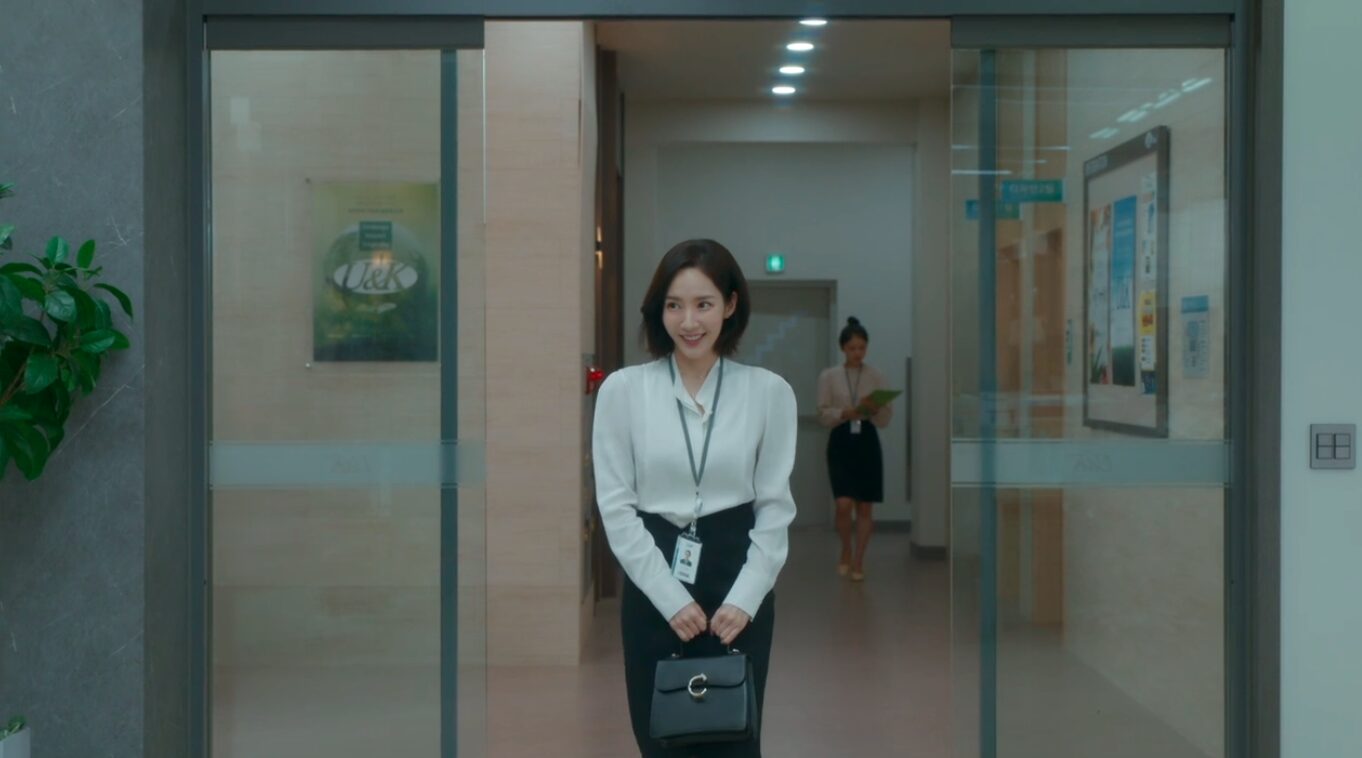D.P.’s second season continues Korea’s discussion about institutionalised violence in hierarchical systems
When D.P.‘s first season was released in 2021, I admit to feeling so overwhelmed by it as a story that I found myself unable to write about it. An adaptation of a webtoon based on a young man’s real life experiences in the Korean military, the show was so raw and so bleak that writing about it seemed almost impossible.
Two years later, the promised second season has finally dropped on Netflix and I feel more up to the task of discussing a show that is a powerful and compelling piece of television but nonetheless dark and often disturbing. But, in possibly its greatest criticism, essentially hopeless.
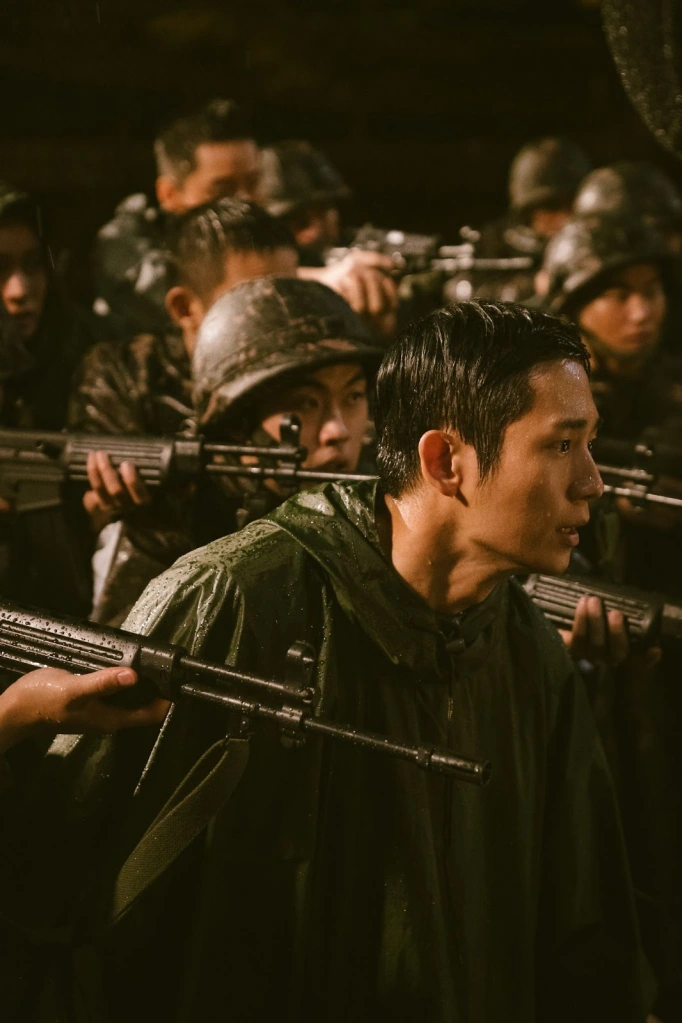
D.P.‘s first season followed Ahn Jun-ho (Jung Hae-in) after he’s pressed into service as part of Korea’s compulsory conscription for young men. This requires all men between the age of 18 and 35 to do two years of national service and exists in the context of its ongoing conflict with North Korea.
Faced with the vicious hazing and bullying of the service, Jun-ho manages a kind of escape by joining a military police team that is allowed out to bring back deserters (Deserter Pursuit or D.P.). He is partnered up with senior, Han Ho-yul (Koo Kyo-hwan), brightening the show with some bromance and providing him a sympathetic friendship in the midst of the chaos.
While the drama investigates the reasons that young men desert the military, it also tells of the tragic consequences of the hazing culture on young men with no choice but to serve for a full two years.
D.P.‘s first season brilliantly asked us first to celebrate Jun-ho’s ability to keep himself safe from the violence around him and then to ask ourselves why he stood by while others were subjected to the horrors he escaped. A question he himself is forced to tackle.

D.P.‘s first season was well crafted from a technical perspective and took a human-centred approach to telling its story. Whereas other media on the subject might have critiqued the military while leaving broader Korean society unscathed, D.P. was most notable for positioning the roots of the violence squarely in the wider culture.
The script, production and acting worked together to create a grim tapestry portraying the hierarchical bullying and violence as being endemic to Korean society generally but given brutal form in its nation’s military. While the violence in the armed forces is shocking, it is shown as being widespread outside the base: from the workplace to educational institutions to the home. Violence, D.P. bravely contests, an integral part of society that is merely given free reign in the military.
D.P.’s first season was a dramatic build-up to an inevitable act that nonetheless resolved nothing and changed nothing. Our protagonist walks off a shell of a man and the violence perpetuates itself into the credits.
While the show alienated some viewers with its inherent hopelessness, that hopelessness was its message. There is simply no individual path out of a collective problem. There are few shows that have had the courage to make that point so bluntly.
Last year’s Weak Class Hero – about a student who uses violence to stand up to violence and only ends up escalating the problem to the point of tragedy – is probably the closest to D.P. in conveying this sense of sheer hopelessness. There is no way out of violence in these kinds of hierarchical structures because violence is not a bug of the system but a feature.
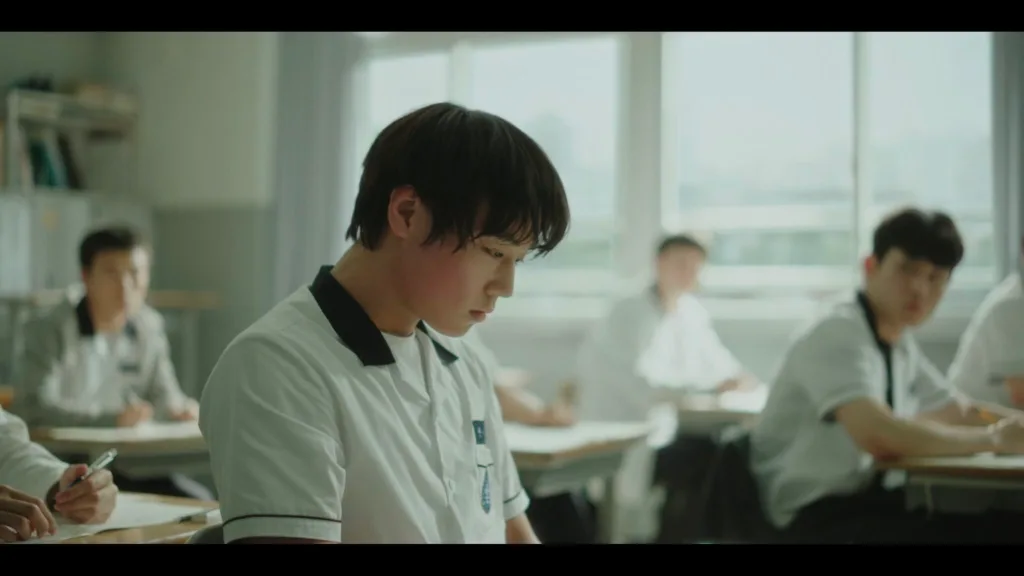
When D.P.‘s second season opens, Ahn Jun-ho still has 413 days till his discharge and absolutely nothing has changed. The military is working hard to cover up the shocking events of the previous season while the hazing, bullying, harassment and humiliation endemic in the institution continues unabated.
The military’s desire to protect itself as an institution by avoiding justice for its individual members is the main theme of D.P.‘s second year as several high profile cases bring public attention to bear and the establishment acts to protect itself. From a legal standpoint, this is embodied in the military’s legal fraternity who are tasked, not with justice but with image management.
Jung Hae-in’s initial portrayal of a broken man is so palpable that it’s almost painful to watch and you start to worry if he’s going to be the one to crack next. Before that can happen, the brutal mass shooting that bookended the first season occurs and Jun-ho is sent after the perpetrator knowing that any of his seniors or juniors could be driven to act in the same way. Knowing that he also could be the next to decide to run.
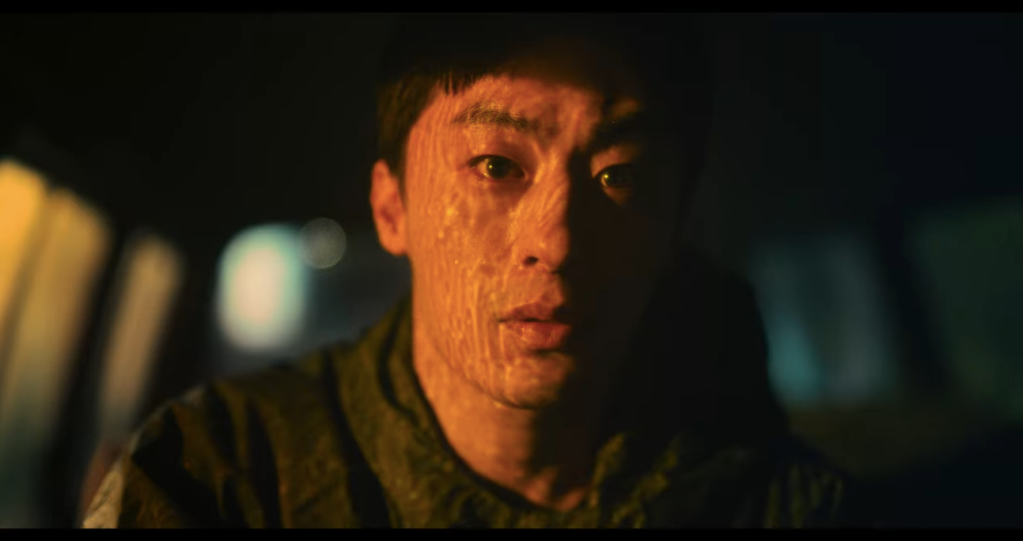
D.P.‘s second season has some tonal variations between the episodes that stop it from being quite as consistent as its first year but it is just as compelling and only slightly less uncompromising. While it may seem as though the show is walking us through an unsolvable problem, it serves to highlight the very human nature of these tragedies and the equally human reaction to them.
In particular, the story of queer deserter, Jang Sung-min/ Nina, is one of the most poignant stories in the six-episode set and features an extraordinary performance by rookie actor, Bae Na-ra. It’s an episode that highlights the cognitive dissonance implicit in Jun-ho’s role: that he can only experience some respite from bullying by tracking down those who are fleeing the same violence.
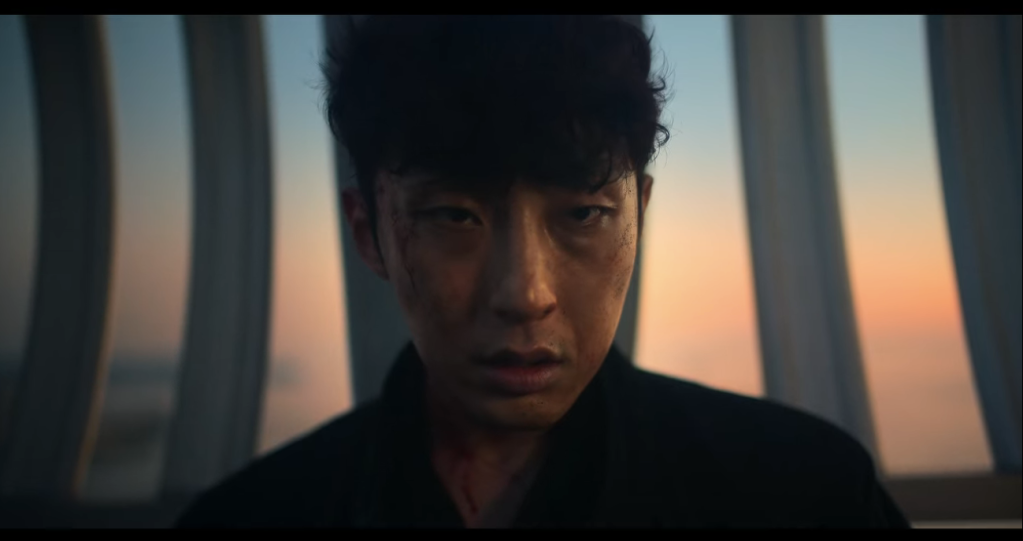
D.P. is an unflinching look at the perpetuation and normalisation of violence and about what happens when people think they have no way out. But, unlike its first season, its second at least teases the idea that there is a way through. With external pressure building and some members of the system driven to be whistleblowers, there is the possibility that something may change.
If there is a flaw to the piece as a whole, it’s the way in which the series get bogged down in the military’s response to the mass shooting and its cover-ups rather than dealing with the issue of the violence itself. If anything, D.P. itself seems also to be grappling with how such a significant structural issue should be tackled. In the end, it chooses to concentrate on the lower hanging fruit of Duty of Care and gets a bit too caught up in a race-against-time to get evidence of the cover-up to trial.
This just reinforces that individual actions will never be enough. It’s the system itself that will have to change. And that starts with honesty and accountability.
But if I had to sum up this season of D.P. as a separate entity from its first outing, it would be in Jun-ho’s last scene. The simple act of fighting for what’s right – even for an uncertain outcome – means he’s taken a step back from broken. Exhausted and dispirited and still with 364 days to go, he’s nonetheless slightly more than the empty shell we left in 2021.
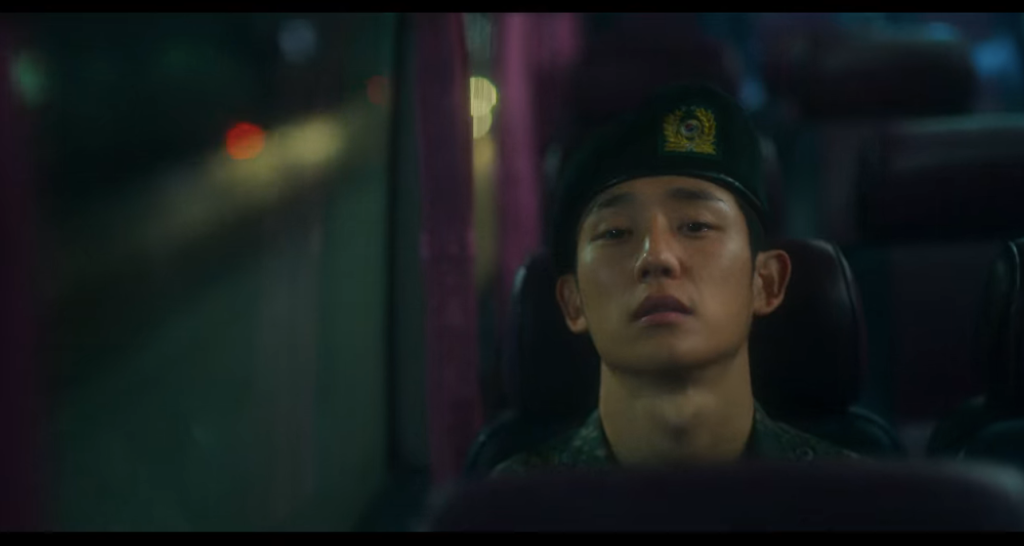
And while season 1’s mid-credit scene was of a massacre, this season’s mid-credit scene is (almost) happy and (almost) hopeful. But whether things are getting better generally or just for Jun-ho – well, that remains to be seen.



